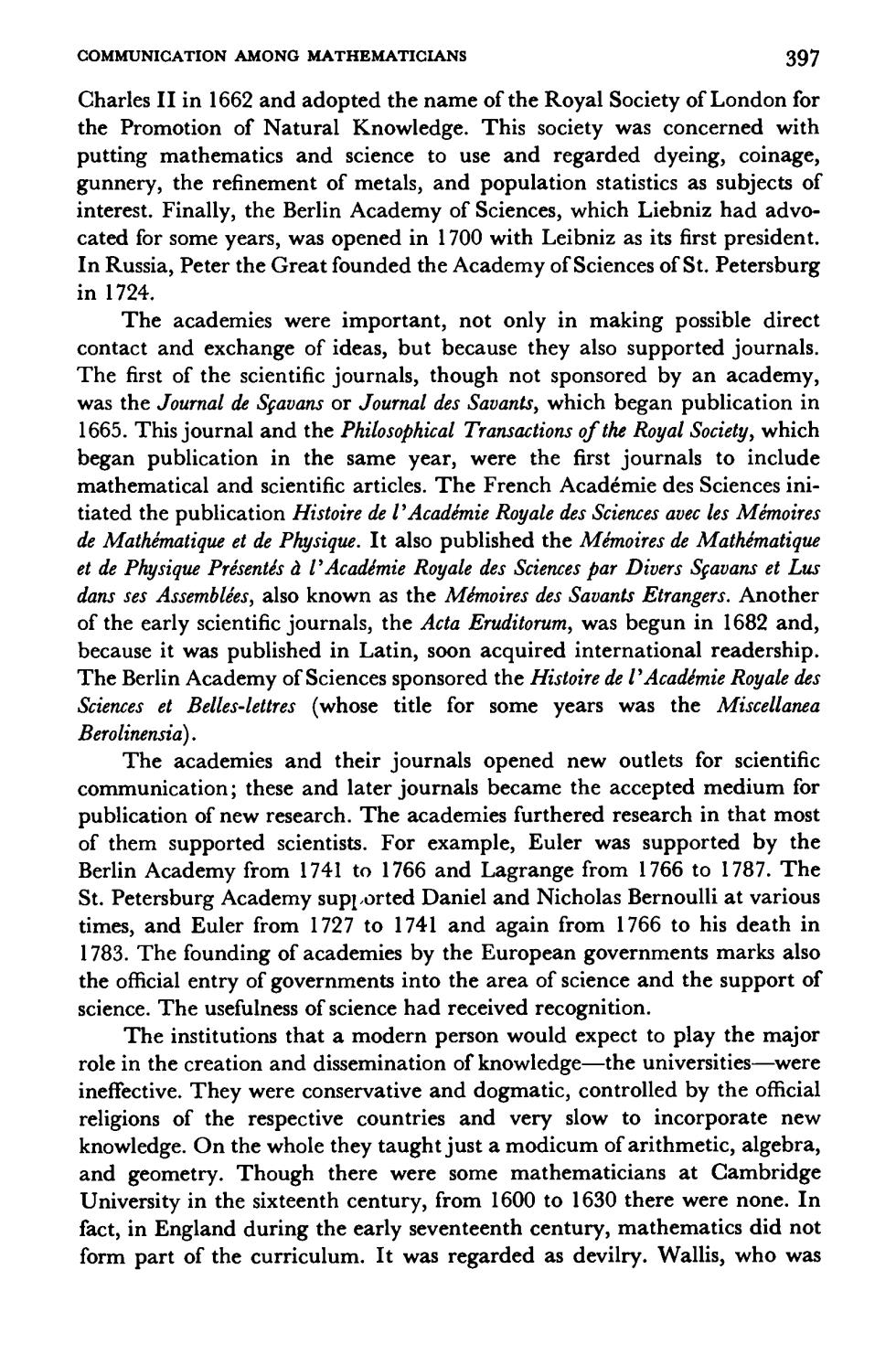正在加载图片...

COMMUNICATION AMONG MATHEMATICIANS 397 Charles II in 1662 and adopted the name of the Royal Society of London for the Promotion of Natural Knowledge.This society was concerned with putting mathematics and science to use and regarded dyeing,coinage gunnery,the refinement of metals,and population statistics as subjects of interest.Finally,the Berlin Academy of Sciences,which Liebniz had advo- cated for some years,was opened in 1700 with Leibniz as its first president. In Russia,Peter the Great founded the Academy of Sciences of St.Petersburg in1724. The academies were important,not only in making possible direct contact and exchange of ideas,but because they also supported journals. The first of the scientific journals,though not sponsored by an academy, was the Journal de Scavans or Journal des Savants,which began publication in 1665.This journal and the Philosophical Transactions of the Royal Society,which began publication in the same year, were the first journals to include mathematical and scientific articles.The french academie des sciences ini- tiated the publication Histoire de l'Acadimie Royale des Sciences avec les Mimoires de Mathematique et de Physique.It also published the Mimoires de Mathematique dans ses Assemblees.also known as the Memoires des Savants Etrangers.Another of the early scientific iournals.the Acta eruditorum.was begun in 1682 and. because it was published in Latin,soon acquired international readership. The Berlin Academy of Sciences sponsored the Histoire de l'Academie Royale des Sciences et Belles-lettres (whose title for some years was the Miscellanea Berolinensia). The academies and their journals opened new outlets for scientific communication;these and later journals became the accepted medium for publication of new research.The academies furthered research in that most of them supported scientists.For example,Euler was supported by the Berlin Academy from 1741 to 1766 and Lagrange from 1766 to 1787.The St.Petersburg Academy supt orted Daniel and Nicholas Bernoulli at various times,and Euler from 1727 to 1741 and again from 1766 to his death in 1783.The founding of academies by the European governments marks also the official entry of governments into the area of science and the support of science.The usefulness of science had received recognition. The institutions that a modern person would expect to play the major role in the creation and dissemination of knowledge- the universities- were ineffective.They were conservative and dogmatic,controlled by the official religions of the respec ive countries and very slow to incorporate new knowledge.On the whole they taught just a modicum of arithmetic,algebra, and geometry.Though there were some mathematicians at Cambridge University in the sixteenth century,from 1600 to 1630 there were none.In fact,in England during the early seventeenth century,mathematics did not form part of the curriculum.It was regarded as devilry.Wallis,who was